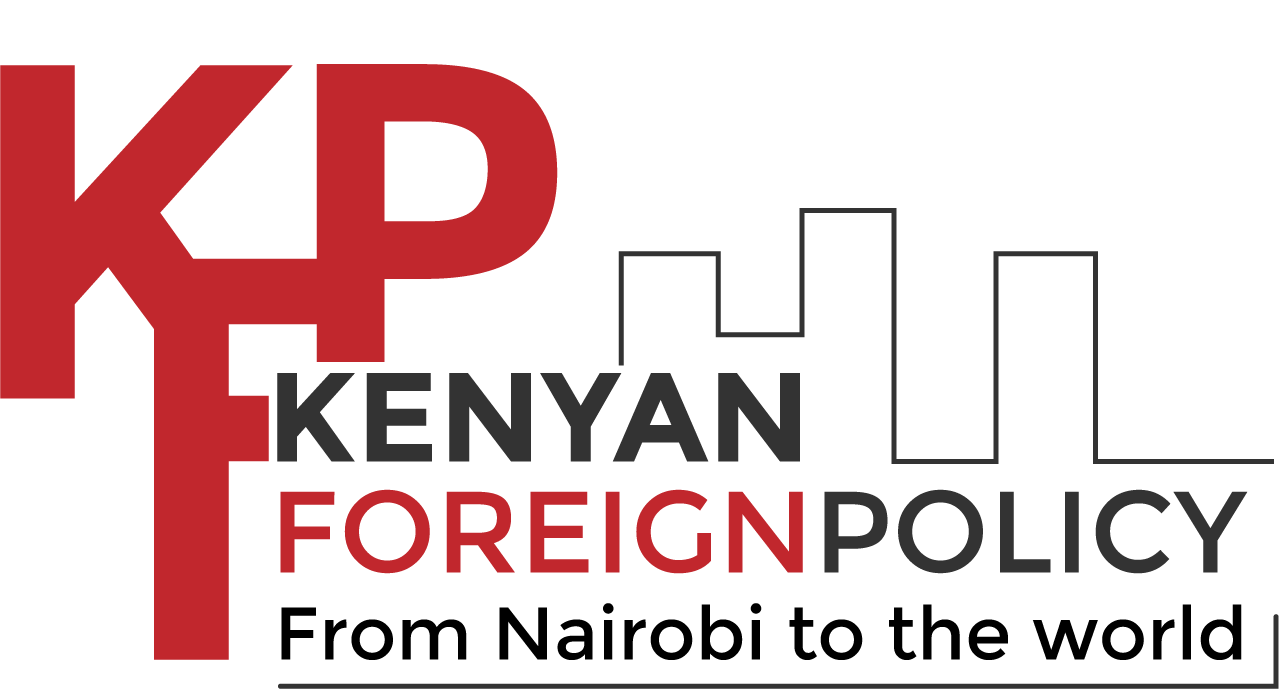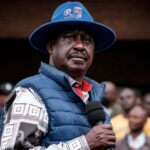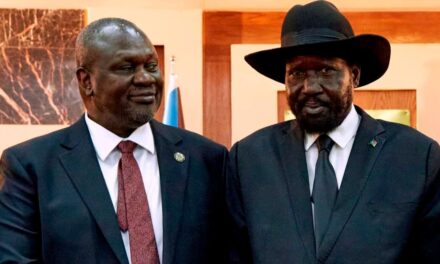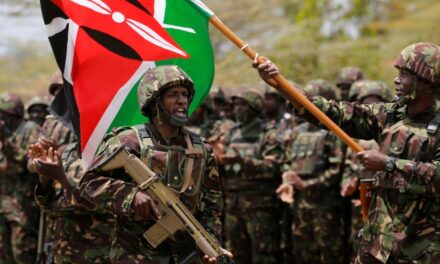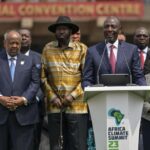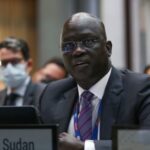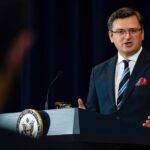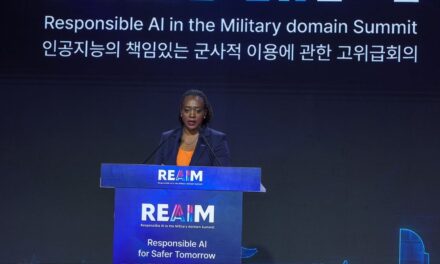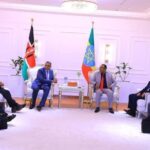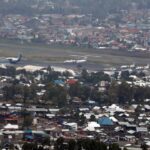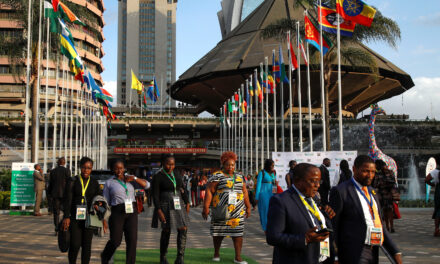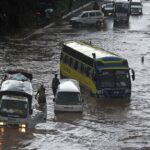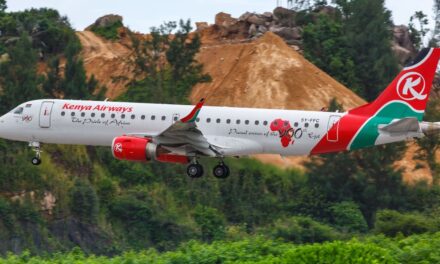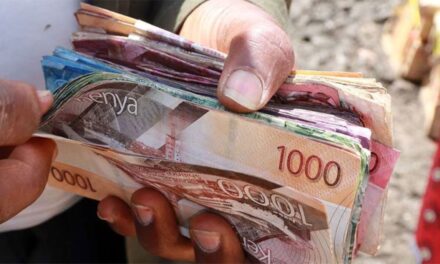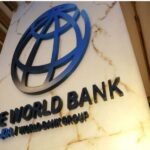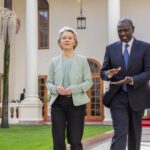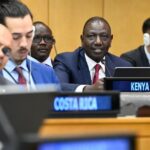
Kenyan Foreign Policy in a New World Order
Posted by Ndungu Wainaina | Oct 2, 2023 | DIPLOMACY


On April 5, 2013, I wrote an article “The Fallacy of Going East: Can it Replace the West?”. The article highlighted the distortions of information regarding trade and investments between China, the European Union, the United States of America, and Japan with Kenya.
It demonstrated that Kenya’s core export destination for its products outside East African countries is Europe and the United States. However, Kenya lacks a coherent and consistent shared domestic policy that influences the character and mission of her foreign policy.
Kenya has to expand and deepen its trade relations with the countries while seeking new frontiers, especially from emerging big economies of Brazil, India, Turkey, Indonesia, and South Korea. Indo-Pacific is the 21st century economic, trade, military, and technology arena.
Kenya will need to find her footage and leverage in this region.

During the recent G20 Summit in New Delhi, a Memorandum of Understanding (MoU) was signed among the governments of India, the U.S., Saudi Arabia, the European Union, the UAE, France, Germany, and Italy to establish the India–Middle East – Europe Economic Corridor. IMEC is envisioned as a network of transportation routes encompassing railways and sea lanes.
Its primary objective is to promote economic development by fostering integration between Asia, the Arabian Gulf, and Europe. This project falls under the umbrella of the Partnership for Global Infrastructure Investment (PGII), which aims to secure funding for critical infrastructure development, including roads, ports, bridges, and communication systems, with the overarching goal of enhancing global trade and cooperation.
East Africa’s total exports to China and India, which are often depicted as two important trading partners, is less than 2%. This is extremely unfair and exploitative. Economic growth is necessary, but not sufficient in order to achieve development. Africa desperately needs a technological and engineering revolution, a transformation of systems, processes, and procedures for trade and investment, and the development of technical capacities for effective intra-regional cooperation and integration to deepen trade, productivity opportunities, and economic diversification.
With the rise of emerging economies like India, China, and Brazil, the challenge is “maintaining and strengthening the current international rules-based order that has underpinned global strategic stability and economic growth” while being alive to changing global dynamics. The emerging big economies must become “more responsible global stakeholders shouldering their share of global obligations”.
Africa is still far below its rightful position in the global economy, considering its size, population, and resource endowment. It is largely made up of low and lower-middle-income countries. The GDP per capita growth rate generally follows the growth rate of commodity prices and disparities are highest after Latin America. African countries rank poorly in the rule of law.
African Union accepted as part of the G20: Prior to this, the only African member of the G20 was South Africa. At the Delhi Summit of the G20, the African Union, which represents the 55 countries in the African continent, was given full membership, like how the EU is represented. This signals recognition of Africa as an emerging player in the global geopolitical matrix.
Poor governance and leadership, fragility, and inequities remain major bane of Africa. The increasingly multi-polar global economy, competition for finite natural resources and oil, aging world, innovation and technological advancement, climate change, and Africa’s larger population are major factors working favorably for the continent.
There are two levels of power transformation taking place simultaneously globally. There is a transformation of power among the states and the power shifts to the non-state actors. The importance of civil society and corporate entities is rising exponentially.
In the new world order, global institutions must reform to create a more predictable, effective, and wide-reaching system of cooperation. Global institutions remain appropriate if the allocation of decision-making authority within them corresponds to the changing distribution of power.
In November 2020, when President Joe Biden was elected postulated that the USA’s domestic and foreign policy will be based on three fronts. First, a strong domestic investment to revive the US economy and trade as well as position the USA as a global leader in industrial technology edge. It will have aggressive deterrence by rebuilding alliances and partners for effective competition and cooperation to assertive domestic policy interests. Finally, rebooting democracy. This will be within the era of the great power competition.

The United States of America’s domestic economy has been struggling to remain competitive. However, the USA is still a strong global power with leadership in the global financial system and research innovation field.
In the global space, the USA with close to 58 allies is changing its foreign and security policy. It is decreasing its military footprint on the ground while investing more in the deployment of sophisticated military technology and capabilities in pursuit of its security policy and developing the capacity of allies.
USA foreign trade and economic policy focuses on the geo-strategic controlling of important regions like South Asia-Pacific (US Pivot to Indo-Pacific and AUKUS initiatives). It is keen on the successful negotiation and implementation of three trade treaties namely the Transatlantic Trade and Investment Partnership (TTIP), Indo-Pacific Economic Framework for Prosperity (IPEF), and North America Free Trade Agreement ( USA, Canada and Mexico) forming the world’s biggest trade deals with huge ramifications.
USA trade and economic strategy for Africa has largely remained on five components namely Trade Africa, Light Africa, Africa Young Leadership Initiative, Security Cooperation, and AGOA.
Washington’s key allies, the European Union and Norway have quietly and steadily been developing trade policy tools to facilitate their effective adaptation to the changing world based on “the principles of multilateralism, anti-militarism and rule of law to attract partners”.
They have taken the lead in new sustainable environment-friendly economic development initiatives and green energy collaborative efforts. The EU still speaks with a powerful, constructive voice on human rights and democracy.
In Africa, Economic Partnership Agreements between the European Union and the continent where the Union is offering “tariff-free access to Europe’s markets” in return countries would “open up their markets to goods from the EU” remains controversial.
The new language is ‘co-equal partnership’. Japan is focusing more on consolidating world peace and security as the key driver of its economic interest. Her policy towards Africa is built on the twin principle of “ownership” and international “partnership” for strategic “private sector-led growth,” “promoting human security” and “South-South cooperation.”
The Chinese foreign policy always comes second; domestic policy first. China’s global priorities are shaped primarily by domestic economic and political imperatives.
Former United States Foreign Secretary Henry Kissinger notes China is “a country facing such large domestic tasks, is not going to throw itself easily into strategic confrontation or a quest for world domination.” China, with a mixture of a developed and developing economy, is keen to cooperate with other major powers to aid its core national objective of completing the economic modernization task.
However, with her economy starting to struggle and shifting of industrial production, China is facing a reality check on projecting her power globally.
China identifies Africa as an alternative source of new markets, energy, and raw materials essential for the continuation of its economic modernization.
China has just funded the construction of the Africa Union headquarters exclusively from its own resources. China wants to ensure sustained access to global markets and boost domestic consumption as a driver of its own economic growth. In contrast with America, China will only play a greater global role with a lens of its own national interest.
BRICS remains largely an idea in the making. The conflicting geopolitical changes and different interests of the members make BRICS go a long way in the wilderness.
It lacks core common shared values and unity of purpose. BRICS is a necessary counterforce to redefine and reimage world power dynamics but has quite a journey to cover.
For EU-China relations, despite the high-level political dialogue, with China, the EU seems to be primarily an economic power, not a global military-political power. There will be more China-EU trade agreements as China feels excluded from the big trade partnership.
The writer is a Transitional Justice and Human Security Fellow: @NdunguWainaina
Your support empowers us to deliver quality global journalism. Whether big or small, every contribution is valuable to our mission and readers.
